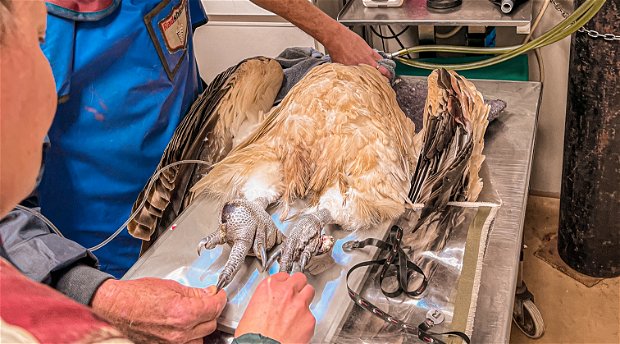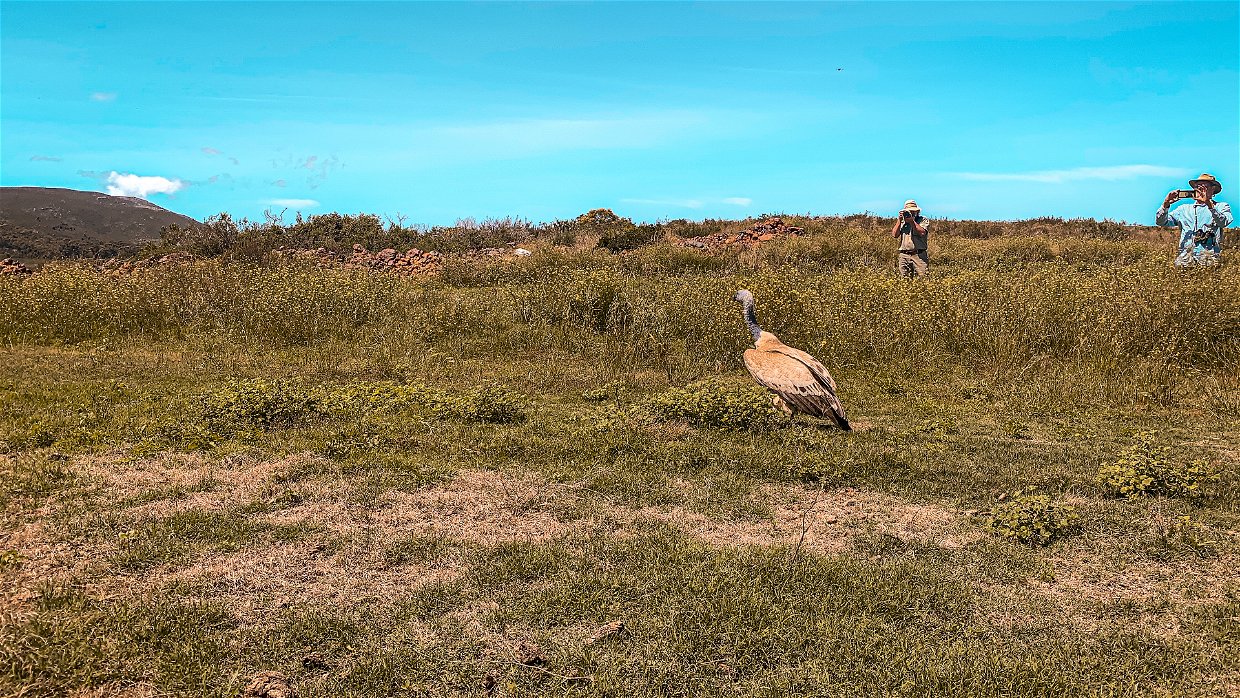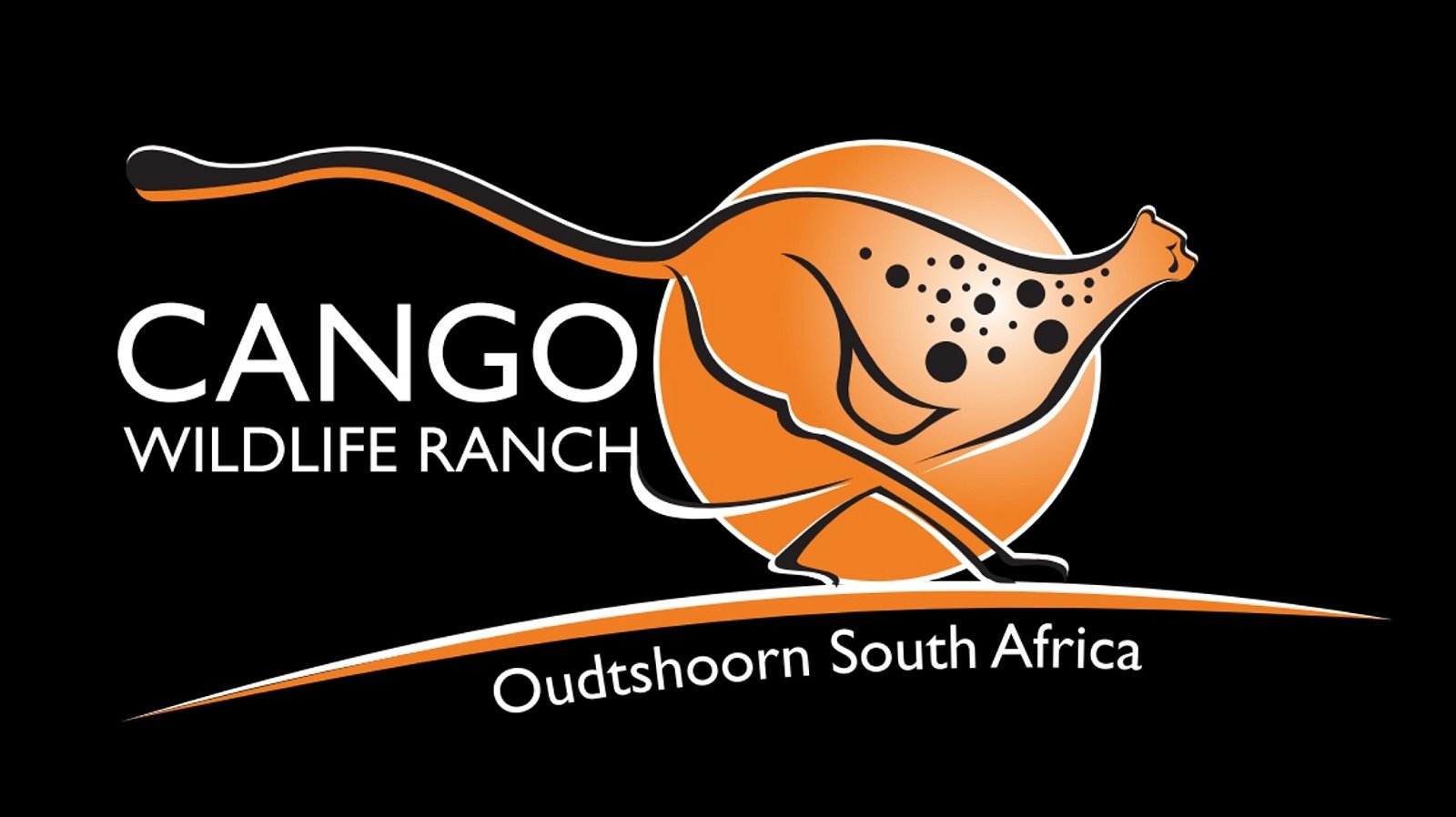Another collaboration for conservation allowed for the second release of a Cape Vulture in the Western Cape!

A joint initiative between VulPro, Cape Nature, and Cango Wildlife Ranch resulted in the triumphant rehabilitation and release of another Cape Vulture; the second rehabilitation and release of this nature, only one month after the first.
On 25 July, Cape Nature through VulPro reached out to Cango Wildlife Ranch and Conservation Centre for assistance with an injured Cape Vulture. The vulture was found in the Potberg region by a local farmer, who was doing his rounds near the Vulture Restaurant. It was evident that the bird was grounded, and it didn’t appear to be eating. Upon closer inspection, the farmer noticed that the vulture’s foot was exceptionally swollen, and that its mobility was compromised. The farmer reached out to VulPro who immediately actioned the collection of the bird. In the interim, communication between Cango Wildlife Ranch, Cape Nature and VulPro commenced. The bird was taken to Oudtshoorn, and Cape Nature met the Cango Wildlife Ranch team at the resident vet practice where the bird was thoroughly examined. The bird’s foot was severely infected (likely caused by a previous injury). The swollen tennis-ball sized foot was X-rayed, and no breaks were visible. However, it was difficult to determine the extent of the internal damage due to the swelling and sheer size of the abscess. The severity of the abscess not only affected the bird’s foot mobility, but the toxins from the abscess severely affected the vulture’s overall health, making it very lethargic and weak. The abscess was lanced and drained, and the bird was placed on an aggressive course of antibiotic treatments. With the advice from VulPro, the bird was taken to the Care Centre at the Cango Wildlife Ranch for ongoing treatment and recovery. Initially the bird did not respond to food; and intubate feeding was administered to ensure that the bird received vital nutrients. After a few days of ‘healing’, physiotherapy was given on the infected foot – this took place 3 to 4 times a week. With much relief, the vulture slowly but surely began to eat on its own, and from there was moved over to the Private Reserve with another vulture (which was successfully released just a few days later). After a few weeks of treatment and physio, the vulture was taken to the vet for another consultation. Additional x-rays were done, and it was sadly discovered that the infection had spread into the bone. Throughout the above process, VulPro was kept updated and consulted with on a regular basis. Although the bird received ongoing treatment and physio, the condition of the foot proved to remain a great concern to all involved. Once alone (due to its roommate being released) it was decided that the best course of action would be to send the bird to VulPro as vultures are very socially reliant.
VulPro, based on the outskirts of Hartebeespoort Dam in the Northwest Province, is a specialised vulture conservation organisation that also undertakes specialist rehabilitation of vultures. VulPro collects injured or grounded birds from every corner of South Africa, in an effort to reduce losses - giving each bird a second chance of ‘release and survival’.
The Vulture was crated and driven up to VulPro’s centre on 5 September. Prof Katja Koeppel from Onderstepoort, examined the vulture, and more X-rays were taken. Due to the extent of the infection, and the treatment already administered, a recommendation was made to euthanize the bird, but this was met with great resistance from VulPro. They agreed to attempt a toe amputation, in the hopes that it would improve the condition. The amputation resulted in another 5-week course of antibiotics, daily laser treatments and bandage changes every two days. After 5 weeks of treatment, blood was again drawn, and incredibly, no infection was detected! The laser treatment had allowed the swelling to subside, although some excess skin remained. The stitches were removed, and a decision was taken to keep the vulture under observation for a further 3 weeks. During this valuable rehabilitation, it happily fed on full carcasses and steadily improved and became stronger and self-sufficient. An EOPS tracking device was attached to the vulture, making it the second ever adult Cape Vulture to be fitted with a tracking device in the Potberg colony (the only known colony in the Western Cape of South Africa). Elated with this progress and the positive recovery, the vulture was declared eligible for release!
The vulture, fondly named George by a VulPro volunteer, is described as a true gentle soul. This bird handled all this treatment like a champion and was incredibly calm and tolerant throughout; almost gratefully accepting the help.
Once eligible for release, George, accompanied by a VulPro representative, flew to the George Airport through Airlink who graciously sponsored the flight. They were both collected from the airport by the Cango Wildlife Ranch team and overnighted in Oudtshoorn. On 25 October, at 5:45AM, the great trek back to the Potberg region commenced to release George. Shortly after arriving there, his crate was opened in an open field. George sauntered out his crate, and in his calm nature, took in his surroundings before he took flight. Another magical moment experienced by all who had the privilege of being part of this release.
Shortly after everyone returned home, we received an amazing notification from VulPro. Based on the tracker, the bird had returned to his colony. Needless to say, there is simply no better outcome than this!
This amazing success was made possible by the collaboration and care of all parties involved; from the owner of the Potberg Guest Farm to the wonderful staff at De Hoop Nature Reserve, the local farmer who discovered the bird, the incredible efforts of CapeNature, VulPro with their leading expertise and their phenomenal medical team, University of Pretoria’s Faculty of Veterinary Sciences Wildlife Unit, Cango Wildlife Ranch for their treatment, housing and care including the assistance received from Oudtshoorn Veterinary Clinic and Physiotherapist Peter Burnett, and last but not least, a big thank you to Airlink for the valuable sponsorship of flights. It proves once more, that together we can truly achieve so much more.
We wish ‘George’ great health and safe flights, always!














Share This Post